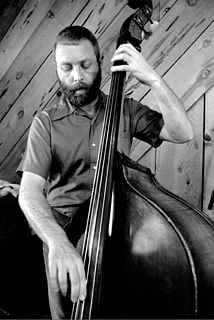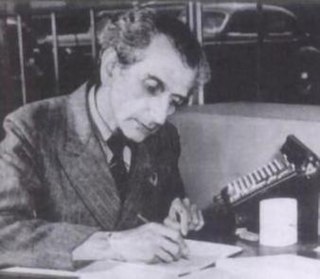A Quote by Andrei Tarkovsky
ALL ART, OF COURSE, IS INTELLECTUAL, BUT FOR ME, ALL THE ARTS, AND CINEMA EVEN MORE SO, MUST ABOVE ALL BE EMOTIONAL AND ACT UPON THE HEART.
Related Quotes
Most of the arts, as painting, sculpture, and music, have emotional appeal to the general public. This is because these arts can be experienced by some one or more of our senses. Such is not true of the art of mathematics; this art can be appreciated only by mathematicians, and to become a mathematician requires a long period of intensive training. The community of mathematicians is similar to an imaginary community of musical composers whose only satisfaction is obtained by the interchange among themselves of the musical scores they compose.
The whole point of art, as far as I’m concerned, is that art doesn’t make any difference. And that’s why it’s important. Take film: you can have quite extreme emotional experiences watching a movie, but they stop as soon as you walk out of the cinema. You can see people being hurt, but even though you feel those things strongly, you know they’re not real.
Somehow, some way, every person in the arts has to find an accommodation with disappointment and embarrassment. They are the pollen in the air we breathe. If you must go into the arts, go into them for yourself alone. On some basic level you must enjoy the act of doing it ... Otherwise, you are going to end up frustrated and unhappy. Recognition in the arts is luck and gravy.
The very act of writing assumes, to begin with, that someone cares to hear what you have to say. It assumes that people share, that people can be reached, that people can be touched and even in some cases changed. So many of the things in our world lead us to despair. It seems to me that the final symptom of despair is silence, and that storytelling is one of the sustaining arts; it’s one of the affirming arts. A writer may have a certain pessimism in his outlook, but the very act of being a writer seems to me to be an optimistic act.
What we also need to have a discussion on the philosophy of art: so we must ask what is it that we want in the first place? Is it just about saying and doing whatever you want, or is it about something more? We should let the artist be free, but we must also question how exactly he deals with freedom. Is it arts for elevation or arts for destruction? Is there dignity in the process?
Patronizing the Arts is a brilliantly nuanced assessment of why universities must become art patrons. Learning from the twentieth-century university's embrace of Big Science, Garber argues that twenty-first-century universities must rigorously devote their attention to Big Art. Provocative, witty, and layered, Patronizing the Arts cogently demonstrates the advantages for both art and the university in this new and radical alliance.






































